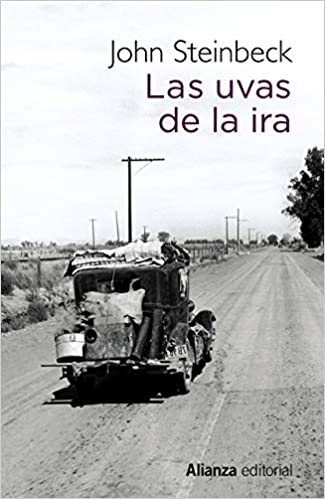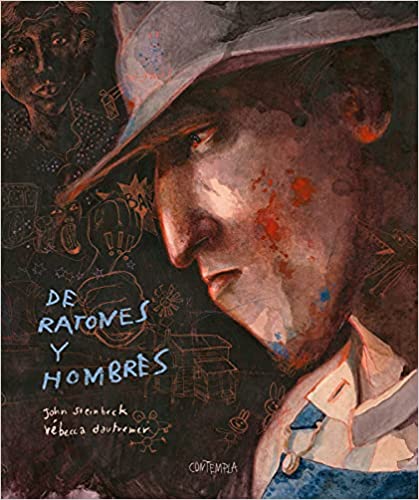Social circumstances mark, and even more so, a writer in charge of exercising, in some way and to a greater or lesser extent, as a chronicler of the times lived. John Steinbeck Thematically he was not absent from those hard years of the Great Depression that inaugurated the 30s and that especially hit the United States, the author's homeland.
Y thanks to him, so many intra-histories of all social spheres are humanized, through a realism that turned the present into an authentic black genre, where the economic decline favored the pressing misery and its dehumanization.
And in the midst of that decline of the American dream and the world dream by extension, a breeding ground for future war conflicts, John Steinbeck was clear that his thing was to narrate what was happening from the most particular settings. It cost him his, but in the end his incisive pen found its way, until the Nobel Prize for literature in 1962 confirmed that he had not made a mistake in choosing the exciting, tragic and fascinating profession of writer.
3 Recommended Novels By John Steinbeck
The grapes of wrath
The decade of the 30 was left behind. Years of misery and disenchantment that had ended up leading to the Second World War.
In those days, everyone went in search of their particular gold. The journey and landing in new places only served to increase disenchantment and highlight the rootlessness and lack of integration. People who transhumated their souls to end up grazing in more misery and absolute incomprehension.
Summary: Distinguished with the Pulitzer Prize in 1940, The Grapes of Wrath describes the drama of the emigration of the members of the Joad family, who, forced by dust and drought, are forced to leave their lands, along with thousands of others. people from Oklahoma and Texas headed for the “promised land” of California after the terrible effects of the Great Depression and the Dust Bowl.
There, however, the expectations of this army of the dispossessed will not be fulfilled. Among the film versions that this novel has known, the memorable one starring Henry Fonda and directed by John Ford stands out.
Of mice and men
Want it not, Don Quixote gave a lot of himself for a number of new proposals for quixotic characters. Personalities bordering on the grotesque and taking a trip to nowhere proliferate in the history of literature or even cinema.
Steinbeck also joined this trend of telling the world through unique characters that, in the long run, provide a unique perspective that ends up opening our minds to all.
Summary: Lennie, a mentally retarded as gross as he is sweet, wanders the roads alongside the mischievous and resourceful George. They are two wandering figures in the rural landscape of the Great Depression that devastated North America, always looking for any job that will allow them to survive.
John Steinbeck, Nobel Prize in 1962, portrayed in many of his novels the world of the underprivileged who roamed rural America during the Depression years, in search of any job that would allow them to survive.
In this novel, which was brought to the screen in 1992, Steinbeck narrates the relationship between Lennie and George: Lennie, a mental weakling as primitive as he is tender; George, a clever to resourceful rogue, who tries to protect Lennie from himself, although he sometimes relies on his strength to get out of trouble.
The friendship between these two marginalized beings and their confrontation with the conventional and civilized world of the powerful is the product of a human side that is still as valid today as when this novel was written, more than sixty years ago: solidarity.
In the jungle of the night
What do we intend to bequeath to a child? Sometimes we want them to be like us, but almost always we pretend they are better than us.
The domestic education and the contrasts that grow as time goes by putting each one in their place, the parents behind the scenes and the children taking the stage, improvising a play that we will probably never script.
Summary: Joe Saul could be anyone, an acrobat, a farmer or a sailor, moved by the intense desire to pass on to a son all his heritage. Are you able to do it? And to understand what pitfalls you have to overcome along the way?
In this dramatic work, written following the same formula as Of Mice and Men and The Moon Has Set, John Steinbeck reflects wryly on the value of blood, legacy, pride and friendship, on man's primary passions and on the serenity necessary to understand them.
As the author himself pointed out in his acceptance speech for the Nobel Prize for Literature in 1962, "we must search within ourselves for the responsibility and wisdom that our prayers once wanted to assign to some deity."



